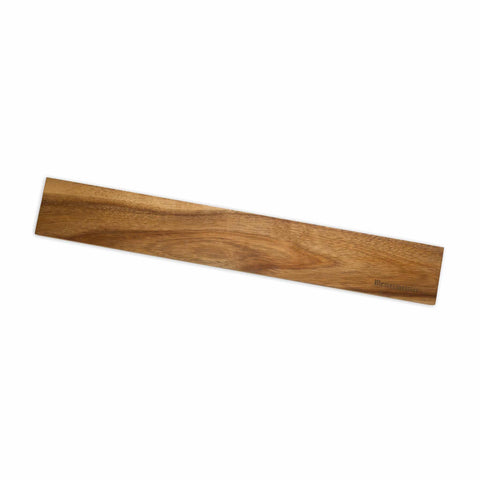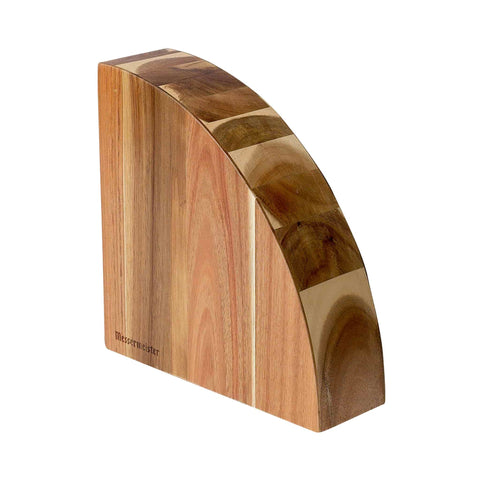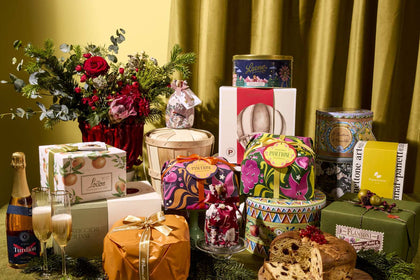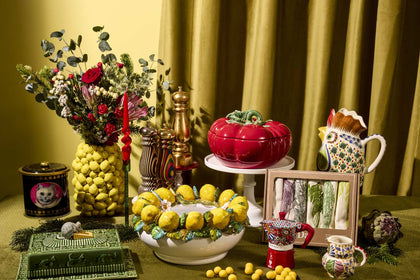How To Properly Store Kitchen Knives
by Kristin Lohse

The way you store your knives is really important. Good storage will keep your knife sharp, and sharp knives are safer than blunt ones. They won't slip on tough vegetable skins for example - and you are less likely to injure yourself if the knife is sharp.
Read on to discover which are the better types of knife block to use. Or how to create the perfect knife drawer for keeping your blades in perfect condition.
Sous Chef knife experts
In this guide, you’ll hear from Sous Chef buyer Kristin Lohse, who has many years of kitchen knife experience - and is a true expert in sharpening and caring for knives. And Sous Chef food editor Holly Thomson, who has been trained in knife skills by expert chefs and cookery teachers. Plus Sous Chef founder Nicola Lando shares her insight and expertise. Nicola has over a decade of experience talking to the world’s best knife makers, small producers and artisan knife brands.
Browse our kitchen knives collection here, or read our guides on How to Care for Your Kitchen Knife and How to Sharpen Kitchen Knives.
Become a kitchen knife expert, with our Ultimate Guide to Kitchen Knives.
Where to store kitchen knives
Proper knife storage is essential for maintaining sharpness and longevity. These simple yet effective practices will ensure your kitchen knives stay in top condition, promoting both safety and functionality in your culinary space.
Magnetic knife strips
Wall-mounted magnetic strips are a great space-saver. Plus you can easily see exactly which knife you’d like to use. The benefits of a knife strip are that you can store a good number of knives of any shape or size. And they won’t take up any space on your countertop.
However, a drawback of metal magnetic strips is that knife blades can be blunted every time they ‘snap’ back onto the strip, or get slightly pulled along the strip as you remove the knife. If you can, opt for a wooden version such as the Messermiester acacia wood strip. The softer wood won’t scratch your knives.
Knife blocks with proper slots
Investing in a quality knife block is a very effective way to store your kitchen knives. Look for blocks with designated slots for each type of knife to prevent blades from touching. This not only keeps your knives organised but also maintains their sharpness for longer. Opt for a block with a stable base to ensure safety and accessibility in your kitchen.
The benefit of a kitchen knife block is that your knives are very secure. Especially if the block is stored at a safe distance from worktop edges.
Best way to store kitchen knives - what not to do!
What are these common knife storage mistakes we tend to make? Discover what to avoid when storing your kitchen knives.
- Storing knives loose in drawers. Storing knives loose in drawers will lead to blade damage and pose safety risks. Prevent blade nicks and maintain sharpness by using a drawer insert. Or make sure your knives have their own blade guards. Always make sure any knife drawers are out of reach of small children.
- Improper use of knife blocks. Using knife blocks improperly, such as forcing knives into slots or neglecting regular cleaning, can dull blades and compromise their condition. Ensure your knife block is a suitable size for your knives, and insert them gently to preserve sharpness.
- Not cleaning knives between use. Wherever you store your knives, if the storage isn’t clean then you risk damaging the blade and blunting the sharpness. Make sure your knives are clean and beautifully dry, before storing them in your kitchen.
Can you put knives in a dishwasher?
Most chefs and knife experts agree: do NOT put your kitchen knives anywhere near the dishwasher.
Putting knives in a dishwasher can lead to several issues, including dulling, corrosion, and potential damage to handles. The high-pressure water and harsh detergents can wear down the blades and compromise the knife's overall quality. Handwashing your knives with mild soap and warm water is the best practice for maintaining their sharpness and longevity.
How to store kitchen knives without a block

Alternative storage options
If you don’t have a traditional knife block, explore alternative storage options to keep your knives secure. As mentioned above, magnetic knife strips offer a space-efficient solution, allowing you to display and access your knives easily.
For storing several large knives safely, without a block, you may consider a leather knife roll. To use the roll, slot your knives in the spaces, roll up and fasten with the buckles.
Store knives in a location convenient for your workflow, minimising the risk of mishandling or dropping. Regularly inspect and maintain your chosen storage solution to keep it clean and safe for your valuable kitchen tools.
How do chefs store their knives?
Leather knife rolls are a popular knife storage choice for chefs. This is because often a chef will bring their own personal set of knives to different jobs. As one of the most important tools of their trade, chefs can be fiercely protective over their personal knives!
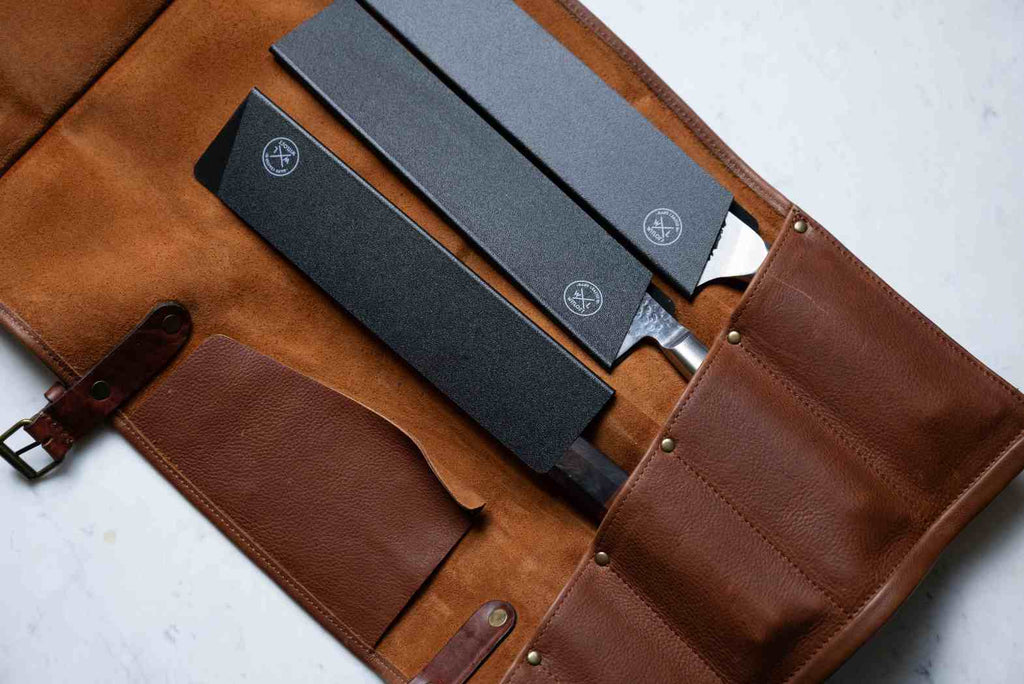
Why don’t chefs use knife blocks
Ever noticed why you don’t see many knife blocks in professional kitchens? Everything in a kitchen needs to be wipe-clean.
Sous Chef’s in-house food safety advisor Alejandro says “When it comes to the kitchen, hygiene is non-negotiable. Keeping professional kitchens clean is essential. Knife blocks pose too much of a challenge when it comes to cleaning out the deep holes. They are not a practical choice for professional kitchens”
Secondly, when every second counts in a bustling kitchen, visually spotting the right knife on a magnetic strip proves quicker than rummaging through slots. It's all about efficiency and accessibility.
So, while knife blocks are a fantastic choice for home countertops, chefs often opt for magnetic strips or leather rolls.
What is the most hygienic knife block
The most hygienic option is a magnetic knife block. This means your knives are not sat in potentially unclean storage holes. But still neatly stacked on your countertop.
Plus you can see your knives at a glance. It’s the best of every world, when it comes to safe, convenient and attractive knife storage!
What are the two goals when storing knives correctly
Efficient knife storage boils down to achieving two crucial goals: accessibility and safety. The primary aim is to have your knives readily available for use, ensuring a seamless and swift ‘flow’ in the kitchen.
A well-thought-out storage solution, be it a magnetic strip, drawer insert, or countertop block, should strike a practical balance between these priorities.
Create a storage system that suits your kitchen dynamics, keeping your knives both within reach and safe from potential damage.
Common Mistakes in Knife Storage
Good storage is a vital factor in prolonging your knife's longevity. Especially if you've invested in a quality blade, you want to make sure it lasts a lifetime! But what are these common mistakes that we tend to make? Discover the pitfalls to avoid when storing your kitchen knives. Learn about common mistakes and make your culinary space safer and more efficient:
Storing knives loose in drawers
Storing knives loosely in drawers can lead to blade damage and pose safety risks. Prevent nicks and maintain blade sharpness by opting for proper knife storage solutions. Keep your kitchen safer by avoiding this common mistake.
Improper use of knife blocks
Using knife blocks improperly, such as forcing knives into slots or neglecting regular cleaning, can dull blades and compromise their condition. Ensure your knife block is suitable for your knives, and insert them gently to preserve sharpness. Proper care extends the life of your knives and maintains their effectiveness in the kitchen.
Should you put knives in a dishwasher?
Putting knives in a dishwasher can lead to several issues, including dulling, corrosion, and potential damage to handles. The high-pressure water and harsh detergents can wear down the blades and compromise the knife's overall quality. It can also cause the handle to loosen from the blade - especially if there is glue in the handle, which can be compromised in hot washes.
Handwashing your knives with mild soap and warm water is the best practice for maintaining their sharpness and longevity.
How to Store Kitchen Knives Without a Block
When you don't have a traditional knife block, explore alternative storage options to keep your knives secure. Magnetic knife strips offer a space-efficient solution, allowing you to display and access your knives easily.
Additionally, wall-mounted knife racks or even a DIY magnetic board can serve as creative alternatives. Just ensure that whatever method you choose allows for individual knife slots to prevent blades from contacting one another.
Tips for Keeping Knives Safe and Accessible
Regardless of the storage method, always prioritise safety and accessibility. Use blade guards or edge protectors to shield the knife blades and prevent accidents.
Consider installing knife guards on wall-mounted options to ensure a secure fit. Store knives in a location convenient for your workflow, minimising the risk of mishandling or dropping. Regularly inspect and maintain your chosen storage solution to keep it clean and safe for your valuable kitchen tools.
To know more about kitchen knives, check out our Ultimate Guide to Kitchen Knives. Or if you’re curious on which kitchen knives you should buy, try reading our Buyer's Guide to Kitchen Knives. Happy cooking!

About the author
Kristin is the Purchasing and Buying assistant at Sous Chef. She has several chefs and excellent home cooks in her family, and grew up in the kitchen in Sweden. Cooking and baking with her mum happened pretty much every day. Cinnamon rolls were always stocked up in the freezer, and if they were running low, more baking had to be done. Kristin always loves learning more about food and ingredients to continue improving her skills.
